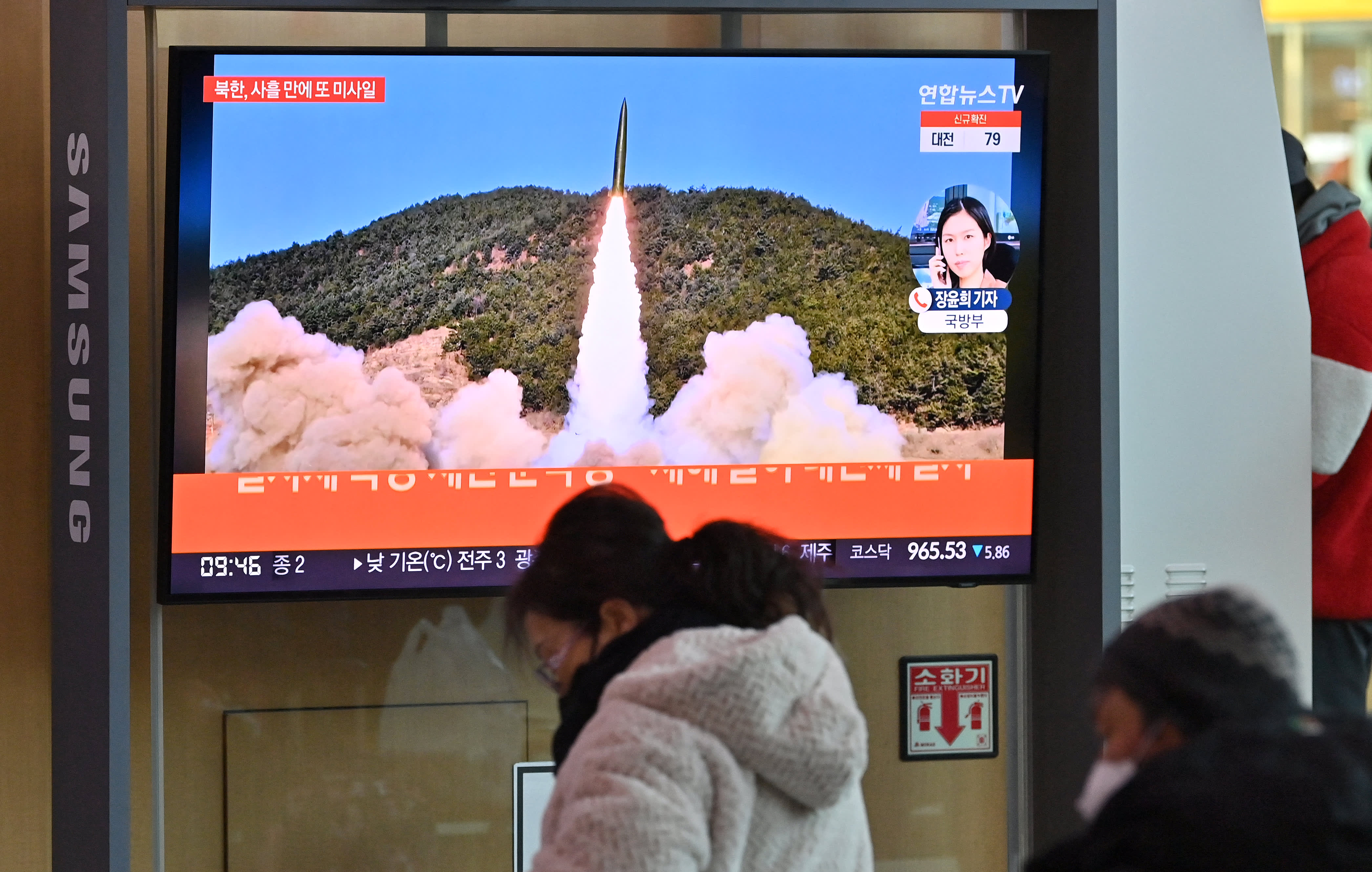
The U.S. decision to focus on engagement with North Korea appears to have been a mistake, a senior fellow at a Washington-based think tank said after the reclusive state conducted four missile tests in a month.
U.S. President Joe Biden “chose engagement only,” said Anthony Ruggiero of the Foundation for Defense of Democracies. “That was his policy in 2021. He didn’t even sanction any of North Korea’s nuclear missile programs at all in 2021.”
“It’s turning out now to be a mistake, because as you said the fourth missile test today. And I’m sure there’ll be more, as you noted, we’re not even halfway through January,” he told CNBC’s “Street Signs Asia” on Monday.
State news agency KCNA reported that two tactical guided missiles were fired on Monday, adding that they “precisely hit an island target in the East Sea of Korea.”
“The Academy of Defence Science confirmed the accuracy, security and efficiency of the operation of the weapon system under production,” KCNA said.
The presidential office in South Korea said North Korea’s repeated firing of missiles was an “extremely regrettable situation.”
Japan’s ministry of defense estimated that the missiles landed outside its exclusive economic zone, and strongly condemned the launches, NBC News reported.
‘Atrophy’ of sanctions on North Korea
The United States did not respond strongly despite North Korea’s multiple missile launches in 2021, Ruggiero said.
“When you allow the sanctions to atrophy, and you don’t sort of respond to ballistic missile launches that were happening in the fall, I think [North Korean leader Kim Jong Un’s] response was: ‘Well, I guess these are OK to do,'” he said.
“Now, the Biden administration has said ‘No, that is not OK to do.'”
The United States last week announced sanctions on eight people and entities for their work in developing weapons of mass destruction and ballistic missile-related programs for Pyongyang. It came after at least two known North Korean ballistic missile tests.
“I think that’s a good first start,” Ruggiero said. “But there’s much, much more they need to be doing.”
He said that past administrations in the U.S. made the mistake of seeing negotiations with North Korea as an accomplishment in itself. “It is not,” he added.
Biden could increase pressure and impose sanctions when North Korea tests missiles, even if talks are ongoing, said Ruggiero.
He also said the two sides appear to be a “long way off from engagement.”
North Korea is trying to lay a trap for the Biden administration.
Leif-Eric Easley
Professor at Ewha University
Leif-Eric Easley, a professor at Ewha University in Seoul, on Friday said North Korea should be offered humanitarian assistance once it is willing to re-engage, but its threats should not be rewarded with international recognition or sanctions relief.
“North Korea is trying to lay a trap for the Biden administration. It has queued up missiles that it wants to test anyway and is responding to U.S. pressure with additional provocations in an effort to extort concessions,” he said in an email after North Korea’s third launch this month.
Calling North Korea’s ‘bluff’
Pyongyang has little room for escalation because of its internal challenges and its need for restraint during the Beijing Winter Olympics, Easley said.
“Washington and its allies should call the Kim regime’s bluff by increasing U.S.-South Korea-Japan security cooperation and strengthening enforcement of UN Security Council Resolutions,” he said.
The U.S. Indo-Pacific Command said the recent missile launches “highlight the destabilizing impact of the DPRK’s illicit weapons program,” referring to North Korea by its official name, the Democratic People’s Republic of Korea.
“The U.S. commitment to the defense of the Republic of Korea and Japan remains ironclad,” it added.




